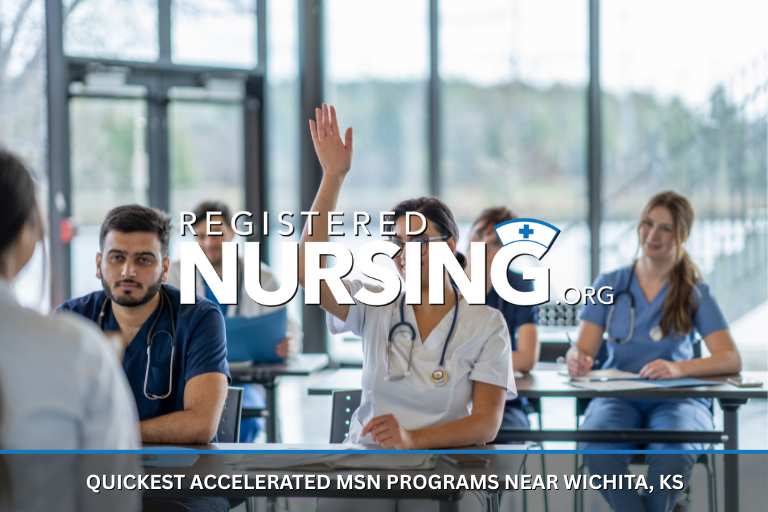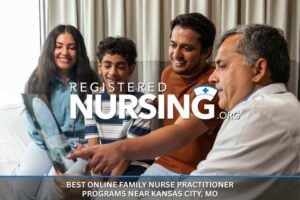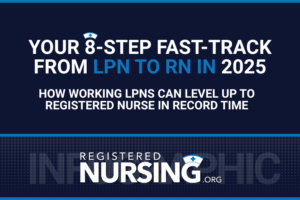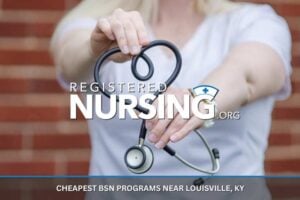Quickest Accelerated MSN Programs near Wichita, KS
- 2025 Fast-Track MSN Options near Wichita, KS
- Understanding Accelerated MSN Pathways
- Wichita's Strategic Advantages
- Clinical Training and Kansas Licensure
- Admission Standards: What Schools Look For
- MSN Specializations and Career Outcomes
- Strategies for Accelerated Success
- At a Glance: Program Considerations
- Moving Forward with Purpose
- Sources
- Latest Articles & Guides

In Kansas, the demand for skilled nurses is reaching critical levels. According to the Kansas Hospital Association, more than 85% of hospitals report ongoing challenges in hiring qualified nursing staff. As the healthcare landscape shifts and rural communities become increasingly underserved, the need for advanced nursing professionals has never been greater. For those aiming to enter the field or enhance existing credentials, accelerated Master of Science in Nursing (MSN) programs offer a timely and effective solution.
Wichita, a regional healthcare hub and home to major employers like Wesley Healthcare and Ascension Via Christi, provides an ideal setting for fast-paced nursing education. These programs compress years of study into a rigorous format that typically spans 15 to 24 months, enabling graduates to quickly step into high-demand clinical and leadership roles. With a blend of affordability, clinical accessibility, and strong academic infrastructure, Wichita supports aspiring nurses looking to make an immediate impact in the profession.
2025 Fast-Track MSN Options near Wichita, KS
Understanding Accelerated MSN Pathways
Accelerated MSN programs are tailored for individuals who already possess a bachelor's degree—either in nursing or another field—and wish to obtain a master's in nursing within an expedited timeframe. Also known as direct-entry or second-degree MSN programs, they combine foundational nursing education with graduate-level coursework in under two years.
These programs include both didactic learning and hands-on clinical training. Students may complete over 500–700 clinical hours, often in multiple specialties. Curricula are designed to prepare graduates for roles such as Family Nurse Practitioner (FNP), Nurse Educator, or Clinical Nurse Leader. Some tracks also offer a pathway to initial RN licensure for students without a nursing background.
Wichita's Strategic Advantages
Wichita, Kansas's largest city, offers more than just geographic centrality. Its robust healthcare system includes teaching hospitals, rural outreach centers, and specialty clinics that provide students with exposure to a variety of clinical settings. This diversity enhances experiential learning while preparing students for advanced nursing certification.
The city’s lower cost of living is another draw. With tuition rates often more affordable than coastal counterparts, students can pursue graduate nursing education without the financial strain seen in other metropolitan areas. Wichita also serves as a central access point for students commuting from Sedgwick, Butler, or Harvey counties.
Community health is a top priority across the region, making Wichita an excellent training ground for MSN candidates focused on family practice, mental health, and underserved populations.
Clinical Training and Kansas Licensure
Accelerated MSN students must complete a minimum number of supervised clinical hours to graduate and qualify for certification. Wichita-based programs frequently partner with top local healthcare providers, offering convenient and relevant placements. These facilities may include:
- Ascension Via Christi
- Wesley Healthcare
- Hunter Health Clinic
- KU School of Medicine-Wichita affiliated practices
Clinical rotations typically cover family practice, pediatrics, mental health, and community health. MSN graduates who pursue APRN roles must apply for licensure through the Kansas State Board of Nursing. Certification from a national body—such as the American Nurses Credentialing Center (ANCC) or American Association of Nurse Practitioners (AANP)—is also required before practicing independently.
Admission Standards: What Schools Look For
Entry into an accelerated MSN program near Wichita requires a combination of academic readiness and professional potential. Applicants are generally expected to provide:
- A bachelor's degree in any discipline
- A GPA of 3.0 or above (cumulative or last 60 credit hours)
- Completion of science prerequisites (e.g., anatomy, physiology, microbiology, statistics)
- Letters of recommendation from academic or professional sources
- A personal statement outlining goals and motivation
- A successful interview (if required)
Other requirements may include CPR certification, immunization documentation, and a criminal background check. Programs may offer conditional acceptance pending completion of prerequisite courses.
MSN Specializations and Career Outcomes
An MSN degree opens doors to numerous leadership and clinical roles in Kansas and beyond. Graduates from Wichita-area programs may pursue specializations in:
- Family Nurse Practitioner (FNP): Delivers primary care, particularly valuable in rural Kansas
- Nurse Educator: Trains the next generation of nurses in academic or clinical settings
- Clinical Nurse Leader (CNL): Coordinates patient care and quality initiatives in hospitals
- Public Health Nurse: Implements community-based health interventions and outreach
A 2023 report from the U.S. Bureau of Labor Statistics indicates that APRNs earn a median annual salary of $129,480, with job growth projected at 38% over the next decade. The outlook is especially strong in medically underserved and aging communities throughout Kansas.
Strategies for Accelerated Success
Completing an MSN on an accelerated timeline requires planning and resilience. To succeed in these intensive programs, students can benefit from:
- Financial Preparation: Explore Kansas-specific scholarships, employer tuition assistance, and state loan forgiveness programs
- Support Systems: Connect with clinical mentors, faculty advisors, and peer networks early on
- Time Management Tools: Use planning apps or digital calendars to organize study schedules and clinical commitments
- Wellness Practices: Prioritize sleep, nutrition, and regular physical activity to manage academic stress
These strategies can improve academic performance and personal well-being, increasing the likelihood of on-time graduation.
At a Glance: Program Considerations
| Feature | Typical Requirements |
| Program Length | 15–24 months |
| Entry Requirement | Bachelor's degree (any field) |
| Clinical Hours | 500–700+ supervised hours |
| Format | On-campus, hybrid, or online |
| Licensure Pathway | APRN certification + KS Board of Nursing license |
| Common Specializations | FNP, Nurse Educator, CNL, Public Health |
Moving Forward with Purpose
Wichita offers a compelling combination of affordability, clinical access, and academic opportunity for those pursuing an accelerated MSN. The region's healthcare infrastructure and educational institutions are uniquely equipped to train advanced practice nurses who are ready to serve Kansas communities.
Accelerated MSN programs are more than a fast track—they are a strategic investment in the future of healthcare. With strong demand, diverse career paths, and regional support, Wichita provides the launchpad for a successful transition into advanced nursing practice. Choosing the right program now can create a long-term impact, not only for professional growth but also for the well-being of local populations. As healthcare needs evolve, advanced nurses trained in Wichita will be essential to delivering accessible, high-quality care throughout the state.
Sources
- Bureau of Labor Statistics – Nurse Practitioners
- Kansas Hospital Association – Workforce Reports
- Ascension Via Christi
- Wesley Healthcare
- Kansas State Board of Nursing
- KU School of Medicine-Wichita
- American Nurses Credentialing Center (ANCC)
- American Association of Nurse Practitioners (AANP)
Latest Articles & Guides
One of the keys to success as a registered nurse is embracing lifelong learning. Our articles and guides address hot topics and current events in nursing, from education to career mobility and beyond. No matter where you are on your nursing journey, there’s an article to help you build your knowledge base.
Browse our latest articles, curated specifically for modern nurses.



